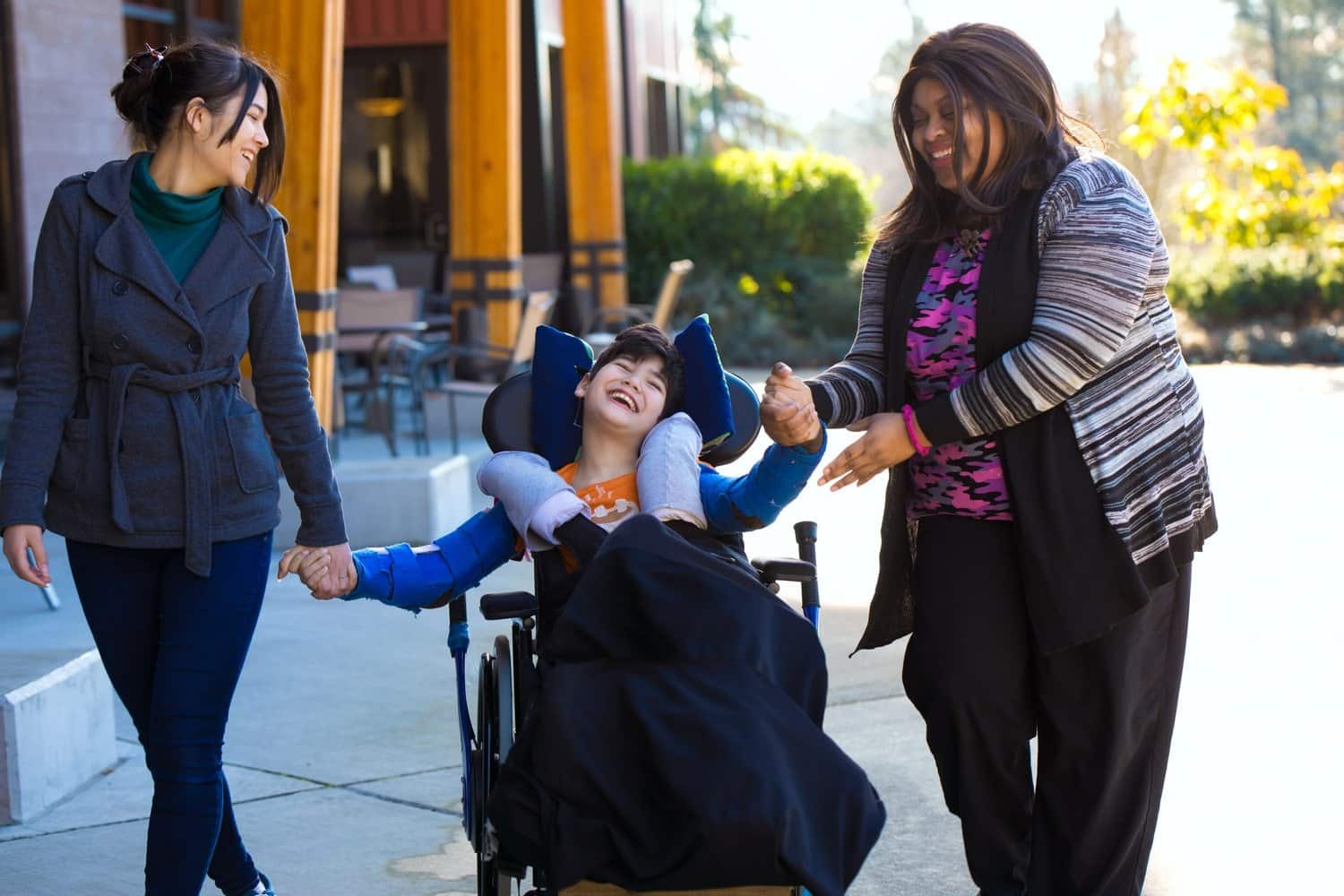We get by with a little help from our friends.
Everyone needs care and assistance from their support system now and again. Whether it be friends, family, or even professionals, it’s important that we surround ourselves with people who have our best interests at heart.
The same can be said for adults with intellectual and developmental disabilities living in residential settings. In a residential setting, they are surrounded by staff tasked with supporting their care needs, both long and short term. But for the best care possible, you’ll need all hands on deck. As a family member of a person with an intellectual/developmental disability, you can help provide comprehensive care for your loved one by working collaboratively with residential support staff and medical professionals.
We All Have a Role to Play
We all play different roles in the planning, implementation, execution, and reassessment of a loved one’s care plan. As family members, you are the ones who know your loved one best. You have an in-depth understanding of their medical and personal history, and recognize their habits and their preferences. On the flip side, residential setting staffers are professionally trained to care for and support their clients’ wants and needs. They are on the ground, and have regular contact with your loved one, which means they can offer daily insights and updates.
For a person with an intellectual or developmental disability, moving out of the family home is a big step – one that brings them closer to traditional ‘independence’. In fact, this is a big step in anyone’s life, and it can be intimidating, overwhelming, and joyous in turn. While moving to a residential setting may not be exactly the same as a teenager moving to their first apartment, it’s a similar milestone on the path to independence and self-sustainability.
As a family member, it’s in your loved one’s best interests – and yours – to help them transition smoothly and successfully to a residential setting. Of course, it helps your loved one feel comfortable, supported, and happy in their new living arrangements. And on the flip side, family members reported higher levels of satisfaction with their loved one’s care when they were able to effectively communicate and collaborate with the professionals in their loved one’s support network.
A Different Path
In many cases, the family members of I/DD adults are excluded from the research surrounding transitions to adulthood, including the move to a residential setting. The insight of family members effectively became irrelevant, and the focus was instead shifted to support service professionals. While the insights of professionals are, of course, crucial to support planning, a more holistic approach to care planning may be preferable or even necessary. Holistic support approaches utilizes an integrated networking method, where both family members and professionals work together to assess the wants and the needs of the individuals with intellectual and/or developmental disabilities.
Taking this comprehensive approach to supported transition helps to ease the anxiety and sadness felt by both the family members and the residential individual. It makes the move as comfortable as possible, while assuring all parties that the individual’s wants and needs are being met in their new home.
At the Independent Living Association, our priority is always, first and foremost, the comfort and happiness of our Individuals. It is our responsibility to ensure our Individuals are well cared for, and that they not only survive, but thrive with the help of family-supported care.
Contact us with any questions or if you would like to learn more about ILA and our programs and services.

































































